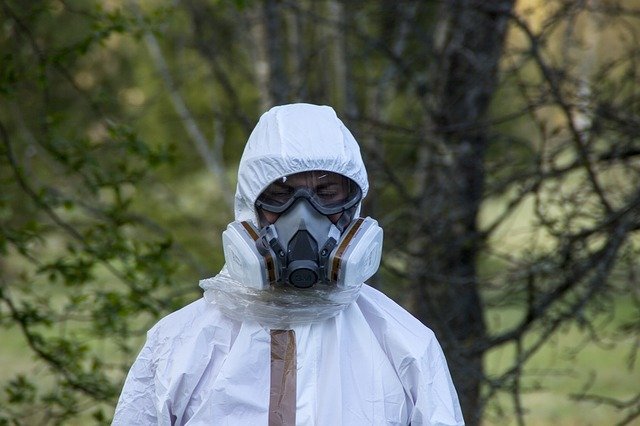This article contains affiliate links
 We are all familiar with the term “When working on old buildings, get an asbestos mask and earmuffs.” We have undoubtedly heard this said many times over, but how much do we really know about them? Do we know when they should be used? If you are working in an old building, then you MUST do a proper risk assessment of the possibility of asbestos being present because only then can you choose which type of protective equipment is necessary for health and to prevent exposure to asbestos fibers.
We are all familiar with the term “When working on old buildings, get an asbestos mask and earmuffs.” We have undoubtedly heard this said many times over, but how much do we really know about them? Do we know when they should be used? If you are working in an old building, then you MUST do a proper risk assessment of the possibility of asbestos being present because only then can you choose which type of protective equipment is necessary for health and to prevent exposure to asbestos fibers.
Breathing in asbestos fibers can cause mesothelioma, a type of lung cancer caused by asbestos. But it’s not only important to protect the lungs – asbestos dust can also affect the eyes. In some countries, only licensed workers can work with asbestos and home owners or unlicensed workers should not attempt to remove or do work on anything that could contain asbestos.
Full face dust masks are the best bet when working with asbestos. The filters protect both the lungs and the eyes. These filters are of the type FFP3, which protects against particles and dust. Paper dust masks do not filter out asbestos dust and fibers and should not be used. Eye protection is needed in case of falling debris or particles released into the air from work, including on low level items, such as floor tiles.
An asbestos mask, or “dust mask”, is usually made from thick plastic or vinyl. There are many different kinds of respirators available, but for general protection, the most common ones are powered air purifying respirators. These are the ones that you will find being used by asbestos workers everywhere. A “fit” test should be carried out on any respirator bought, to ensure it fits correctly. Facial hair may make it difficult to obtain a good seal. Make sure you get training on how to fit any respirator. If you have never used one before, you may need to talk to your medical adviser about whether you can use a respirator as they make the lungs work harder. Physical work on top of this may mean some people cannot use respirators.
An asbestos mask can be of two types. Firstly, a “full faced” or full-faced respirator which provides protection from both airborne particles and vapors. The second type is called a “half faced” or “mouth-blown” respirator. It only provides protection from airborne particles and does not cover the eyes.
It is very important that people who work with asbestos materials must wear protective clothing and masks at all times when asbestos is present. This includes people who perform asbestos-related jobs like cutting, drilling, or building sheet rock. The correct masks and protective clothing need to be worn at these jobs, as the fibers from the damaged or friable asbestos can get into the skin and can lead to serious health problems as well as into the lungs and eyes. All of these dangers must be avoided, so one needs to choose the right asbestos mask for the job.
In addition, workers with asbestos need to wear a full disposable body covering, including with feet. This clothing is removed once work is over and disposed of at the work site, along with other asbestos containing material.